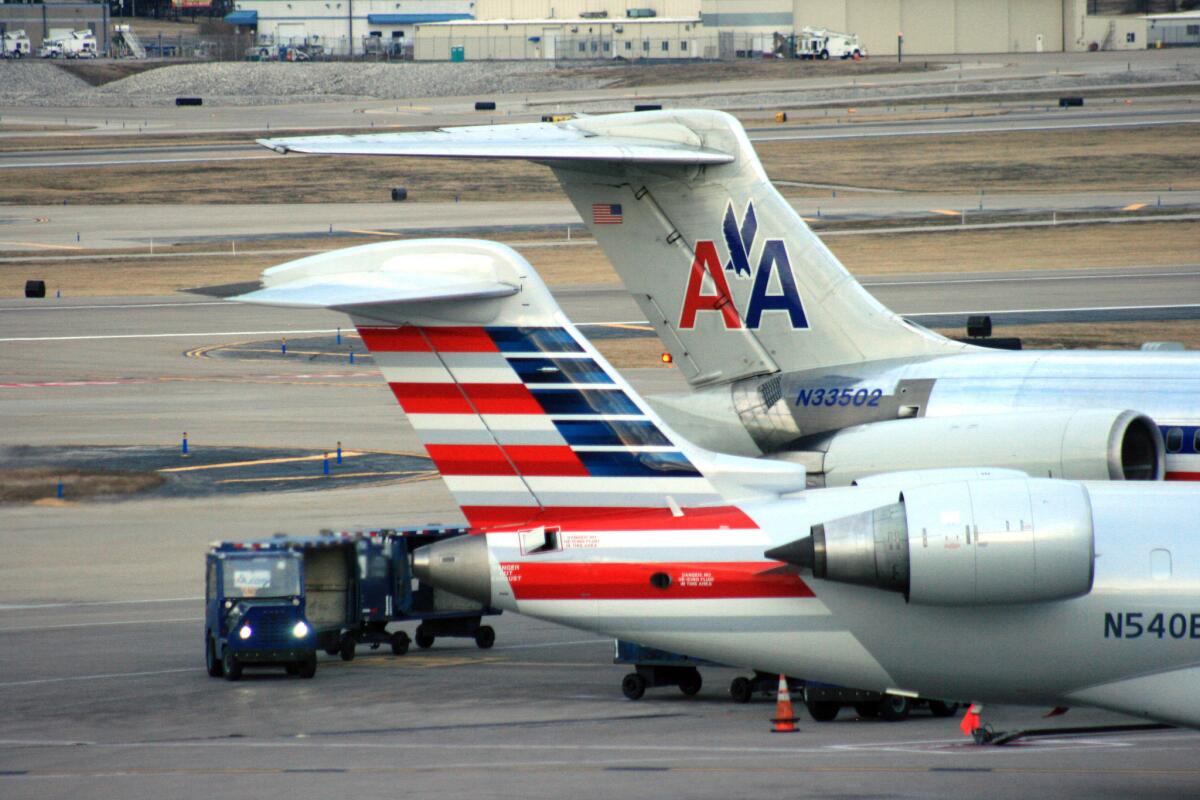Impact of airline mergers a mixed bag, study says

- Share via
The spate of airline mergers over the past decade raised fear among consumer advocates that the consolidation would kill competition and hike fares.
In fact, the results have been a bit more mixed, according to a study released last week.
The U.S. Government Accountability Office’s report found that competition increased slightly on the nation’s most popular air routes and at the country’s largest airports. Competition decreased on less popular routes and in smaller airports.
For example, the route from John F. Kennedy International Airport to Los Angeles International Airport was served in 2007 by three “effective competitors,” defined in the study as airlines with at least a 5% share of the overall market. By 2012, the number of competitors increased to five, the study said.
The study looked at the changes in the industry from 2007 to 2012, the period when Delta Air Lines acquired Northwest Airlines, United Airlines merged with Continental Airlines, and Southwest Airlines acquired AirTran. American and US Airways announced a merger in 2013 but have yet to complete it.
The main reason the mergers have not slashed competition, according to the study, has been the growth of low-cost carriers such as Southwest.
“We found that since 2007, low-cost airlines have expanded into the largest passenger markets, adding new competitors in some markets where mergers may have reduced competition,” the study concluded.
But Diana Moss, vice president of the Antitrust Institute of America, said the biggest impact of the mergers so far has been felt at small- and medium-size airports.
The GAO report noted that the route between Boise, Idaho, and Bozeman, Mont., was served by one major airline in 2012, down from three in 2007.
“That is where the story is,” she said. “It’s how the airlines are behaving in the individual markets.”
To read more about travel, tourism and the airline industry, follow me on Twitter at @hugomartin.
More to Read
Inside the business of entertainment
The Wide Shot brings you news, analysis and insights on everything from streaming wars to production — and what it all means for the future.
You may occasionally receive promotional content from the Los Angeles Times.











